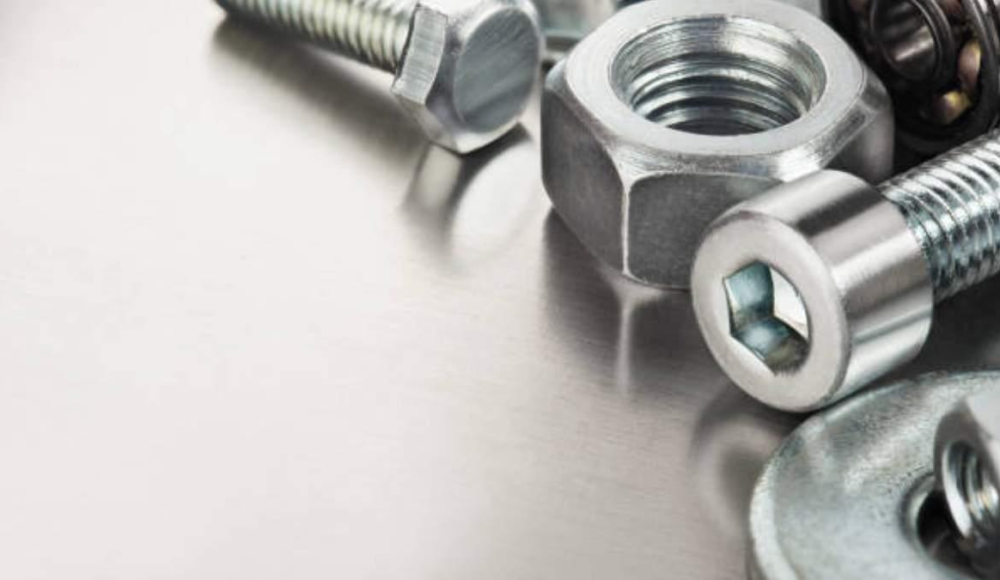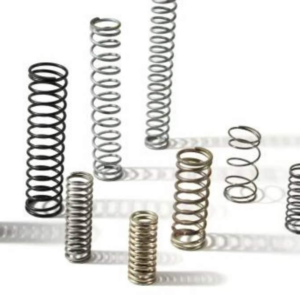Болтовете и гайките са централни крепежни елементи за машини. Потребителската електроника и автомобилният сектор изискват крепежни елементи за правилното функциониране на частите. Освен това, ключови технологични продукти като мобилни телефони, телевизори, автомобили, и хладилниците не могат да бъдат произведени без механични крепежни елементи. В наши дни, налични са няколко вида крепежни елементи, всеки за определени видове употреба. Някои често срещани примери включват; винтове за дърво, болтове с вътрешен ключ, заключващи шайби, винтове с капачки, и плоски шайби.
В тази статия, получавате задълбочена представа за крепежните елементи, какви са те, тяхната функция, и различните видове, използвани в производството.
Какво е закопчалка?
Първо, нека разберем какво представлява закопчалката, преди да преминем по-нататък към нейните видове и приложения. Закрепващ елемент може да бъде винт, пералня, гайки и болтове. Основната функция на всички тези компоненти е да осигурят физическо закрепване на два или повече обекта. Крепежните елементи не трябва да се бъркат с лепилата, тъй като първият може да свързва материали като метал, пластмаса, дърво, или бетон. Те са ефективни при поддържане на устойчиви връзки при стрес.
Различни видове крепежни елементи и как се използват
Крепежните елементи са категоризирани в два основни типа: постоянни и непостоянни. Устойчивите крепежни елементи създават постоянни фуги, докато неустойчивите крепежни елементи са предназначени само за създаване на временни фуги. Механичните крепежни елементи се предлагат в различни размери и видове на пазара днес. Често срещаните примери включват:
- Винтове: Винтовите крепежни елементи с външна резба са високо ценени заради изключителната си сила на задържане.
- Болтове: Непълен винт, използван за свързване на два продукта или компоненти.
- Ядки: Винтови елементи, които държат болтове и не позволяват да се отделят.
- Нитове: Закопчалка за нитове, използвана за създаване на постоянна връзка между два или повече материала.
- Шайби: Шайбите имат плоска и дисковидна форма и се използват в комбинация с гайки и болтове за разпределяне на силите.
- Ноктите: Фолиата се използват в процеса на съединяване на материали.
- Котви: Хардуер, използван за закрепване на предмети върху бетонни основи.
Винтове
Винтовите крепежни елементи са най-популярният вид. Благодарение на тяхната гъвкавост и здравина, те представляват незаменими части. Винтовете с гнездо са с пълна резба и притежават различни набраздени глави по дължината си. Вътрешните резби са от решаващо значение за винтовете, за да държат здраво обекта. Когато се използва, те образуват мъжки нишки в материала, без да е необходимо предварително набиване.
Видове винтове
Има различни видове винтове като машинни винтове, палубни винтове, и винтове за ламарина между другото. Нека обсъдим всеки:
- Машинни винтове: Предназначен за свързване на две метални части, тези винтове се използват, когато има предварително направени отвори с резба. Те са категоризирани като винтови крепежни елементи.
- Винтове за палуба: Също така се наричат винтове за дърво, палубните винтове имат остри, прогресивно намаляващи спираловидни нишки и конусовидни глави. Тези винтове са подходящи за външни палуби и дървени употреби, тъй като са направени с корозионни характеристики.
- Винтове за ламарина: Това са винтове с режещи резби, за да задържат метала към различни вещества с голяма сила. Техните назъбени точки ги правят идеални за използване с ламарина, пластмаса, и дърво.
- Винтове за гипсокартон: Също така се наричат болтове, имат резби с голям диаметър и плоски вдлъбнати глави. Позволява закрепване на гипсокартона, без да се налага да режете много върху материала.
- Винтове с шестоъгълна глава: Това са големи винтове за дърво, които се затягат с гаечен ключ, не отвертка. Главите им са шестоъгълни и могат да предложат висок въртящ момент, следователно те са подходящи за много цели.
Ядки
Болтовете са крепежни елементи, които се използват заедно с гайки. Те са самонарезни, което означава, че те са вдлъбнати вътре в приспособлението, за да съответстват на резбата на болта, за да получат по-добро сцепление и способност за захващане, както и да смекчат въртящия момент. Контрагайките са предназначени за използване само с определени гайки или резбовани отвори. По-долу са различни видове ядки:
- Гайки за колела: Тези гайки се използват за застопоряване на колелата на превозни средства.
- Капачки гайки: Популярно наричани гайки с гнездо. Те се използват за покриване на анкери с вътрешна резба за намаляване на изпъкналостта.
- Фланцеви гайки: Произнася се на автомобилни сглобки, фланцовата гайка има широк фланец, който помага за разпределяне на товара и заключване на компонентите.
- Съединителни гайки: По същество, съединителните гайки се използват за свързване на резбови пръти; в конструкцията им е приложена удължена контргайка.
Ноктите
Гвоздеите са сред най-старите видове крепежни елементи, които все още се използват днес. По много начини, те споделят характеристики с винтовете, но има разлики. Винтовете нямат резба, направени от машина, и като такъв, винтовете са по-здрави от пироните. въпреки това, гвоздеите предлагат по-голяма якост на срязване от сравнимите крепежни елементи с резба. Ето някои основни видове нокти:
- Общи нокти: Тези гвоздеи имат стебло на тялото с по-голям диаметър, което дава силен съюз между двата материала. Недостатък е, че тяхната открита дръжка може да намали красотата на ставата.
- Пирони за кутия: Има диамантени върхове и глави, гвоздеите се използват в строителни практики, включващи стомана.
- Довършителни нокти: Има плоски квадратни глави и е проектиран да бъде скрит в материали. Това улеснява постигането на чист завършек, особено за изискан дизайн.
- Подови нокти: Тези гвоздеи са наречени заради специалната им употреба в подови настилки.
- Покривни нокти: Покривните гвоздеи се използват за надеждно закрепване на покривни материали
- Рамкиране на нокти: Гвоздеите за рамкиране са оптимални за равни приложения и могат щателно да се вписват в структури.
Видове материали, използвани при производството на винтове за ламарина
Ето някои често използвани материали за крепежни елементи в индустрията:
Стоманени крепежни елементи
Стоманата е най-често срещаният материал за крепежни елементи. Отчита се около 90 процентно използване на пазара. Това го прави популярен, тъй като е издръжлив и придава здравина на готовия продукт. Скрепителните елементи могат да бъдат от обикновена стомана и покрити с различни метали, като цинково покритие и галванизация. Индустриите често избират въглеродна стомана, който включва четири стандартни степени:
Класове и материали на крепежни елементи
- Степен 2: Тези крепежни елементи са евтини и широко използвани. Но те не са толкова издръжливи, колкото по-високите класове.
- Степен 5: Този тип, наречен F степен, се използва главно в автомобилния сектор.
- Степен 8: Степен 8 крепежните елементи имат по-висока якост на опън от Grade 5, което ги прави идеални за автомобилни окачвания.
- Стомана: Топлинната обработка се прилага към крепежните елементи от легирана стомана, за да се увеличи тяхната здравина, въпреки че те могат да развият известна слабост.
Крепежни елементи от неръждаема стомана
Неръждаема стомана се прави чрез добавяне на хром към обикновена стомана, съдържаща много ниско съдържание на въглерод; устойчив е на корозия. Има ниско съдържание на въглерод, което го прави достатъчно здрав.
Основните групи неръждаема стомана включват:
- 18-8 хром-никелова стомана
- Неръждаема стомана 410
- Неръждаема стомана 316
Алуминиеви крепежни елементи
въпреки че, алуминий е лек материал, относително мека, и може да се деформира/огъва лесно. Обикновено се комбинират с добавки като цинк, силиций, магнезий, желязо, и мед за подобряване на свойствата им.
Избор на правилните крепежни елементи за вашите нужди
Следователно изборът на правилния крепеж за конкретното приложение е много важен. Имайте предвид тези критични въпроси по време на процеса на подбор:
- Какъв вид закопчалка имате нужда?
- Какво приложение имат тези специфични крепежни елементи?
- Какви свойства трябва да има вашата закопчалка?
- Каква е основната цел на закопчалката?
- Какво трябва да съдържа вашата произведена част?
Отговорът на тези въпроси води до дефинирането на най-подходящите крепежни елементи за конкретна работа. Изборът на правилните характеристики също помага за постигане на максимална производителност за вашето приложение. например, ако трябва да пресечете съединените части под прав ъгъл, крепежните елементи с вътрешна резба са по-оптимални. Това подчертава колко е важно да бъдете внимателни при избора на крепежни елементи.
Заключение
В заключение, може да се каже, че въпреки че механичните крепежни елементи може да изглеждат незначителни, те са критично важни за свързване на компоненти на всеки произвеждан продукт. Има много видове крепежни елементи, които включват контрагайки и винтове, които са няколко болта с резба и шестостенни гайки. В резултат на това, изборът на крепежни елементи трябва да се основава на индивидуалните характеристики на произведения детайл.
освен това, различни крепежни елементи са снабдени с покрития, специфични за определена употреба. Ако търсите персонализирани решения, Най-висока точност е фирма за прототипи и бързо производство, която да ви служи. Така че качете своя дизайн, и получете оферта днес!




5 мисли за "Различни видове крепежни елементи, използвани в производството: Винтове, Болтове, & Отвъд”